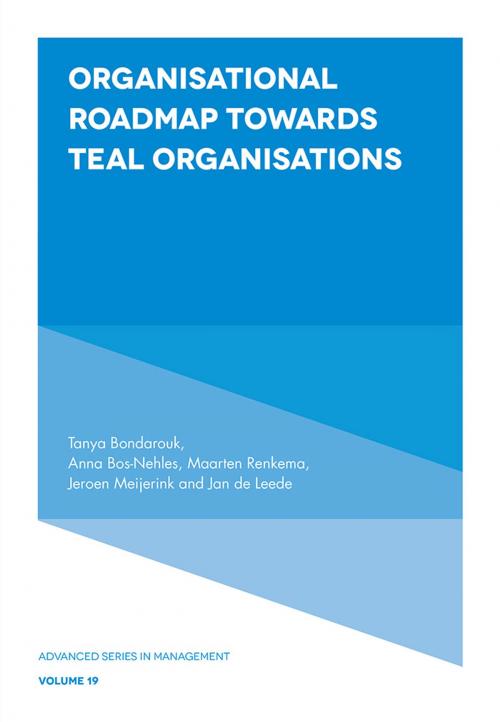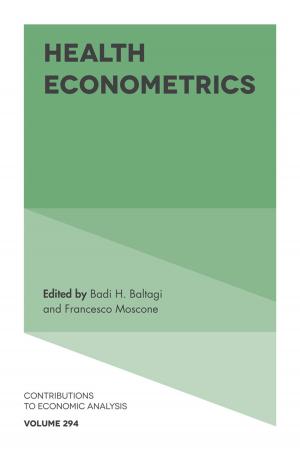Organisational Roadmap Towards Teal Organisations
Business & Finance, Management & Leadership, Management Science, Human Resources & Personnel Management| Author: | Tanya Bondarouk, Anna Bos-Nehles, Maarten Renkema, Jeroen Meijerink, Jan de Leede | ISBN: | 9781787563131 |
| Publisher: | Emerald Publishing Limited | Publication: | July 16, 2018 |
| Imprint: | Emerald Publishing Limited | Language: | English |
| Author: | Tanya Bondarouk, Anna Bos-Nehles, Maarten Renkema, Jeroen Meijerink, Jan de Leede |
| ISBN: | 9781787563131 |
| Publisher: | Emerald Publishing Limited |
| Publication: | July 16, 2018 |
| Imprint: | Emerald Publishing Limited |
| Language: | English |
This volume explores and presents challenges that "traditional" organisations experience once they take off towards self-managing organisations (or Teal Organisations). The concept of Teal Organisations is not surprising nowadays, but strangely enough it remains a dream concept: the majority of modern organisations represent hierarchical managerial constructions, with little to no evidence of self-management.
The main characteristics of self-management are well-known: whole tasks; organisational actors equipped with a certain skill portfolio that is required to accomplish these tasks; work organised in teams that have autonomy for decision-making and performance management. Self-management is often accompanied by greater flexibility, better use of employees' creative capacities, increased quality of work life, and decreased employee absenteeism and turnover, eventually resulting in increased job satisfaction and organizational commitment.
In this volume, we suggest that self-managing teams require a new way forward in modern organisations. Particularly, we offer a new roadmap for leaders who are responsible for the implementation of self-managing teams.
This volume explores and presents challenges that "traditional" organisations experience once they take off towards self-managing organisations (or Teal Organisations). The concept of Teal Organisations is not surprising nowadays, but strangely enough it remains a dream concept: the majority of modern organisations represent hierarchical managerial constructions, with little to no evidence of self-management.
The main characteristics of self-management are well-known: whole tasks; organisational actors equipped with a certain skill portfolio that is required to accomplish these tasks; work organised in teams that have autonomy for decision-making and performance management. Self-management is often accompanied by greater flexibility, better use of employees' creative capacities, increased quality of work life, and decreased employee absenteeism and turnover, eventually resulting in increased job satisfaction and organizational commitment.
In this volume, we suggest that self-managing teams require a new way forward in modern organisations. Particularly, we offer a new roadmap for leaders who are responsible for the implementation of self-managing teams.















